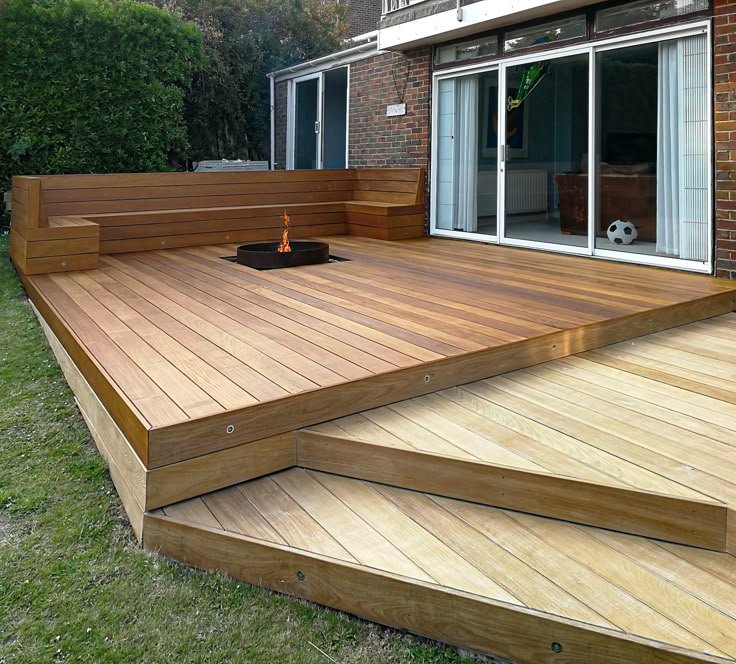Top Causes of Deck Collapse and How to Avoid Them
A deck collapse is not just a structural failure—it’s a safety hazard that can cause serious injuries or worse. In Ottawa, where decks face extreme weather and seasonal stress, homeowners must be especially vigilant. If you’re thinking about building a new deck or maintaining an existing one, knowing what causes most deck failures can help you prevent costly—and dangerous—mistakes.
As a trusted deck builder in Ottawa, Opus Renovation Ottawa has seen firsthand the most common causes behind deck collapses. Here’s what every homeowner should know before stepping onto their deck with full confidence.
Lack of Maintenance and Proper Inspections
Even a well-built deck can fail over time without proper maintenance. Wood decking—especially pressure-treated or natural wood—requires routine care. When left unchecked, small cracks, loose fasteners, and signs of rot can turn into major structural issues.
Tip:
Inspect your deck at least once a year, ideally in spring. Look for soft spots, cracked boards, rusted nails, and warped joists. If you’re unsure what to check for, a local Ottawa deck builder like Opus Renovation can perform a safety inspection.
Failure to Obtain Permits and Build According to Code
Cutting corners on permits might save time upfront, but it could lead to dangerous consequences. Many deck collapses happen when decks are built outside of city code—either too close to property lines, without the required support, or using substandard materials.
In Ottawa, building permits are required for decks over a certain height or attached to a home. Code requirements cover things like railing height, footing depth, beam sizing, and fastener types.
Opus Renovation Ottawa handles permit applications as part of their deck build process to ensure full compliance with Ottawa Building Code and safety standards.
Exposure to Moisture and Rot
Moisture is your deck’s worst enemy. Snow, rain, and humidity—common in Ottawa—cause wood to expand, contract, and eventually rot. Over time, this weakens critical components like beams, joists, and posts.
Composite decking materials resist moisture far better than traditional wood. If you’re planning a new deck, talk to your Ottawa deck builder about moisture-resistant options that are still within your budget.
Insufficient or Improperly Attached Ledger Boards
The ledger board is where most deck collapses begin.
This horizontal board connects your deck to your house—and if it’s not securely attached with the right fasteners or flashing, the entire deck can pull away under pressure. Many DIY deck collapses are traced back to this exact issue.
What’s a Ledger Board?
A ledger board is the structural component that secures your deck to the house. It’s typically bolted directly to the home’s rim joist using heavy-duty lag screws or bolts—not just nails. Proper flashing above the board keeps water from seeping into the structure and rotting the attachment point.
If your deck shifts, bounces, or has visible gaps where it meets your home, call a licensed deck builder in Ottawa immediately for inspection.
Overloading and Improper Design
Decks are designed to support a specific amount of weight, measured in pounds per square foot. Overloading happens when too many people gather, or when heavy planters, hot tubs, or furniture are placed in areas not designed for that load.
Improper design can also mean joists spaced too far apart, undersized beams, or poor footings. These shortcuts are common with unlicensed or inexperienced contractors.
Always work with a reputable Ottawa deck builder like Opus Renovation, who can calculate the correct load-bearing requirements based on how you plan to use the deck.
Severe Weather Events
Snow, ice, wind, and freeze-thaw cycles all stress your deck. In Ottawa, heavy snow build-up can exceed the load-bearing limit of an older or poorly built deck. Ice can force open small cracks and accelerate rot.
A good deck design in this climate should factor in:
- Moisture protection
- Wind resistance
- Snow shedding design
- Corrosion-resistant fasteners
Decks Built Before Current Code Requirements
Deck safety standards evolve, especially in areas with cold climates like Ottawa. Many older decks—especially those built before 2007—don’t meet today’s stricter code requirements for structural integrity.
If your deck is more than 15 years old, it’s time for a professional assessment. You might not need to rebuild from scratch, but reinforcements may be required to bring it up to code.
What’s Your Advice?
Here’s how to keep your deck safe, year after year:
- Hire a licensed, experienced deck builder.
Don’t risk DIY shortcuts or cut-rate contractors. A professional builder like Opus Renovation Ottawa understands local code, materials, and load requirements specific to our climate. - Don’t skip permits.
Even if you think “no one will notice,” a permit ensures your deck is built to code and protects your resale value. - Inspect annually.
Spring is a great time to check for damage from snow and ice. Look for soft boards, loose rails, and any signs of movement. - Don’t overload.
Plan for people, furniture, and seasonal use. If you’re not sure your deck can handle something heavy (like a hot tub), get a structural opinion before installation. - Choose smart materials.
If you’re rebuilding, consider composite decking or treated lumber with long-term durability. Also prioritize hardware that resists rust and corrosion.
Need a Safer, Stronger Deck?
If your current deck shows signs of age—or if you’re planning a new build—start with a team that understands what it takes to build safe, lasting decks in Ottawa.
Opus Renovation Ottawa specializes in custom decks that meet today’s safety standards and reflect your unique outdoor lifestyle. From code-compliant framing to moisture-resistant materials and modern design, they deliver more than just a deck—they deliver peace of mind.

